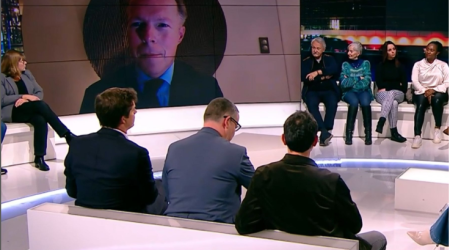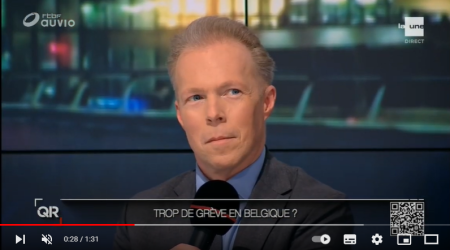Can we block a warehouse and the delivery of stocks? - Right to Strike (QR "Le Débat" - RTBF)
Posted the 30 October 2023Intervention by Mister Delmarcelle on the right to strike at the QR debate - RTBF
During the broadcast of "QR the debate" on RTBF, a lively discussion emerged on the topic "Are there too many strikes in Belgium?".
Several participants shared their perspectives, leading to a deep discussion that highlighted the legal complexities surrounding the right to strike. Mister Delmarcelle, a lawyer specializing in labor law, was invited to shed light on the debate with his expertise.
He pointed out that, from a legal standpoint, the issue was not so much about banning this fundamental right, but rather understanding the secondary implications it brings about. According to him, from a strictly legal perspective, the right to strike signifies the right not to work. This mere act in itself serves as a powerful lever for employers, as they see their revenues impacted when employees cease their activities.
To truly understand the legal challenges of this issue, it's essential to ask the right questions, especially concerning the intervention of the judiciary.
"In the context of the right to strike, the real question is whether, for instance, one can block a warehouse, occupy a crossroads, hinder the movement of goods, or take over a company's premises," Maître Delmarcelle elaborates.
The lawyer emphasized that legal interventions in Belgium typically do not aim to directly prohibit the right to strike. Instead, they address actions related to the strike, such as violent picket lines or occupation of premises. "Judges almost never intervene to ban the strike as such," he recalls. "Their primary role is to protect the rights of the business owner or the neighbor who wishes to continue their activities under normal conditions."
Concluding his remarks, Mister Delmarcelle emphasized the importance of individual rights in this debate: As a reminder, every individual has the right to respect the strike movement without participating in it, but it's equally legitimate for others to seek protection for their own rights."
Related articles

Can an employer require an employee to use AI ? ( JT Trends, 30-07-2025)

QR the debate: Should political mandates and salaries be combined or not? Relive our debate
